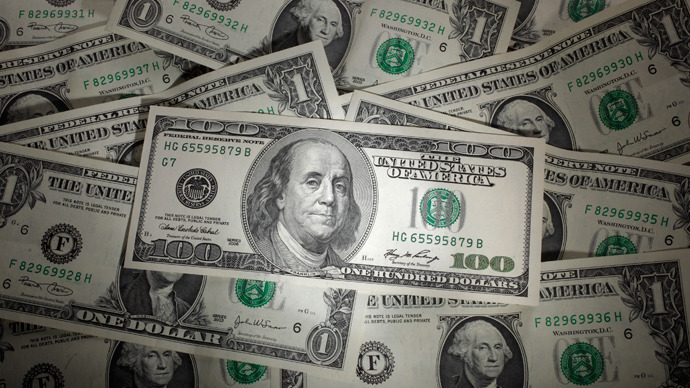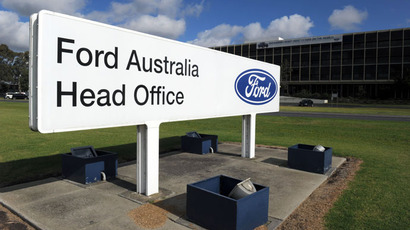Dollar could be in danger as the world’s currency

Though the US dollar continues to reign as the foreign reserve currency of choice, a new International Monetary Fund analysis shows that the currency has slumped to a 15-year low, heightening concerns that it may lose that status.
While the dollar currently constitutes 62 per cent of the $6 trillion in foreign holdings by the world’s central banks, when a historical view is taken into account, Dick Bove, vice president of equity research at Rafferty Capital Markets says the dollar’s actual percentage of total money supply worldwide has gone from 90 per cent in 1952 to about 15 per cent today.
Bove, like many other analysts, believes that the rise of the Chinese currency, the yuan, is at the expense of the US dollar’s dominance as a safe haven.
"Generally speaking, it is not believed by the vast majority that the American dollar will be overthrown," says Dick Bove.
"But it will be, and this defrocking may occur in as short a period as five to 10 years," he tells CNBC.
The repercussions of the dollar’s decline as the foreign currency holding of choice would be more than a symbolic hit to America’s economic standing. With a budget deficit exceeding $1 trillion per year, if the dollar were to decline against other currencies the US would find itself in the uncomfortable position of having to pay back this debt.
Bove goes further, arguing that the deadlock in Congress over the federal budget, and the now-mandatory cuts designated by the sequestration, are eroding confidence in America’s fiscal state.
"The ratings agencies are already arguing that the government's debt may be too highly rated. Plus, the United States Congress, in both its houses, as well as the president are demonstrating a total lack of fiscal credibility," says Bove.

Political wrangling over raising the federal debt ceiling was widely viewed as the primary reason that the US debt’s rating was downgraded in 2011. At the time, the rating agency Standard & Poor’s had issued a warning that progress towards balancing the country’s budget was required for a return to a “stable” outlook. In that same year Moody’s and Fitch Ratings both downgraded as well.
According to the Wall Street Journal, New Zealand and China are currently in talks to make their respective currencies directly convertible, eliminating the need to convert either country’s currency into dollars when making or receiving payments.
Though officials told the WSJ that the talks were in the “very early stages,” such a plan is likely to sound alarm bells for anyone worried over the dominance of the US dollar.
"There is no time frame for concluding an agreement," said a spokeswoman for New Zealand’s prime minister to the WSJ.
"We are aware it took Australia around 12 months to achieve its recent agreement with China,” she added.
If China is indeed embarking on a project to establish its currency as more market-oriented, then its swelling trade with nearby countries such as New Zealand and Australia, which agreed last month to direct convertibility with the yuan, could well continue to undermine the greenback.
Beyond simply removing the American currency from trade, direct convertibility can also make Chinese government bonds more attractive as foreign-exchange assets. Australia, for one, says it plans to invest up to 5% of its total foreign-currency reserves to Chinese government bonds, while New Zealand’s Reserve Bank has thus far not made any announcements either way.
"The No. 1 security issue we have as a nation is the preservation of the US dollar as the world's reserve currency," said Michael Pento, president of Pento Portfolio Strategies to CNBC.
"It's a thousand times more important than a nuclear bomb being tested by North Korea. It's a thousand times more important that we keep the dollar as the world's reserve currency, and yet we are doing everything to abuse that status," he added.














